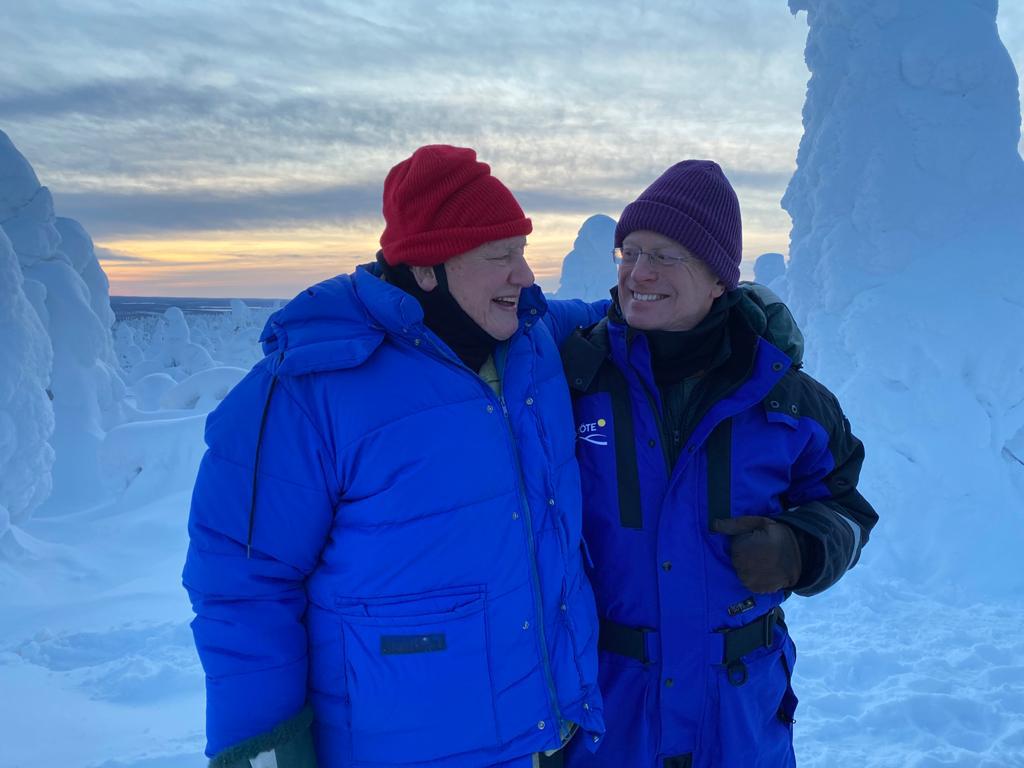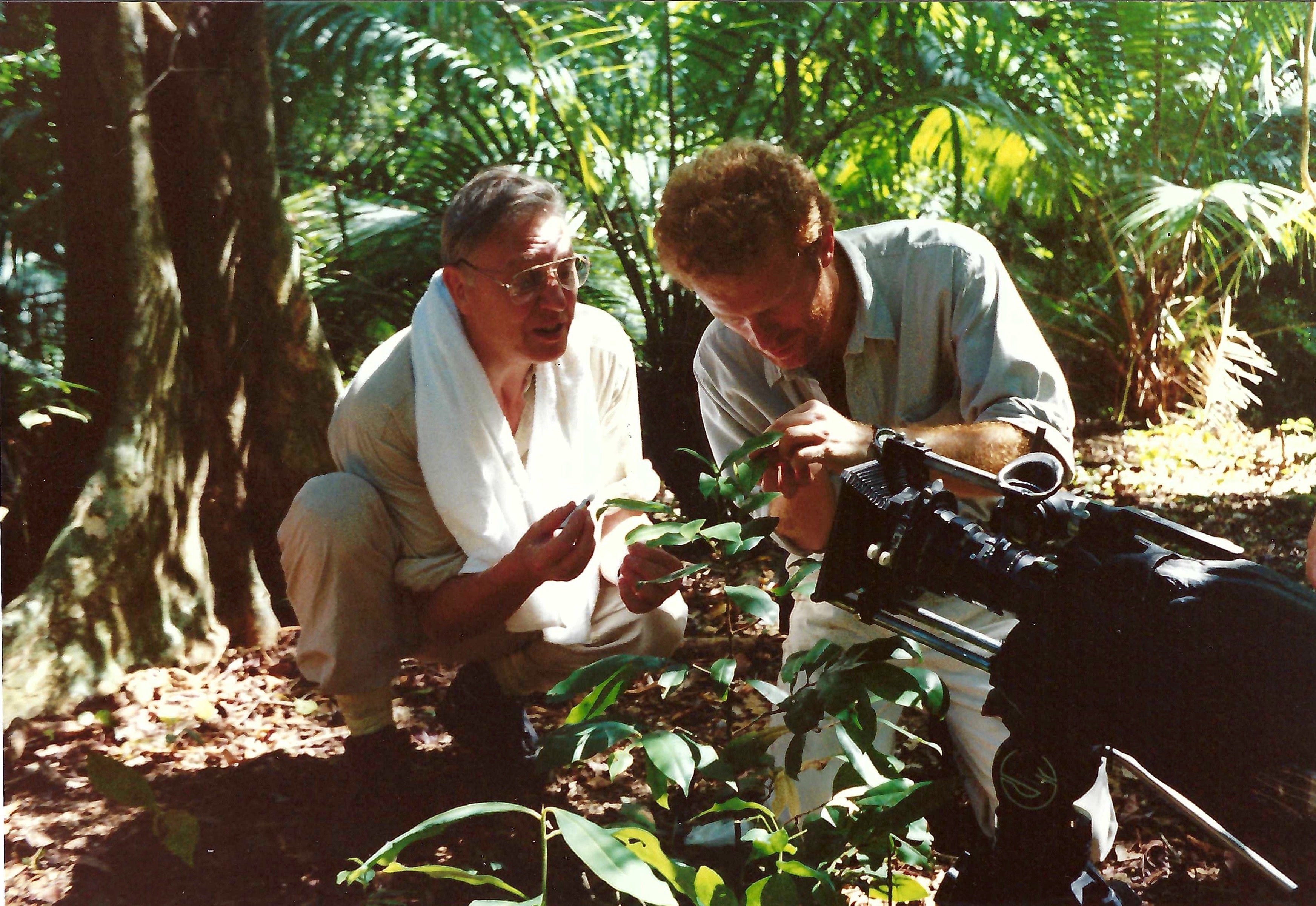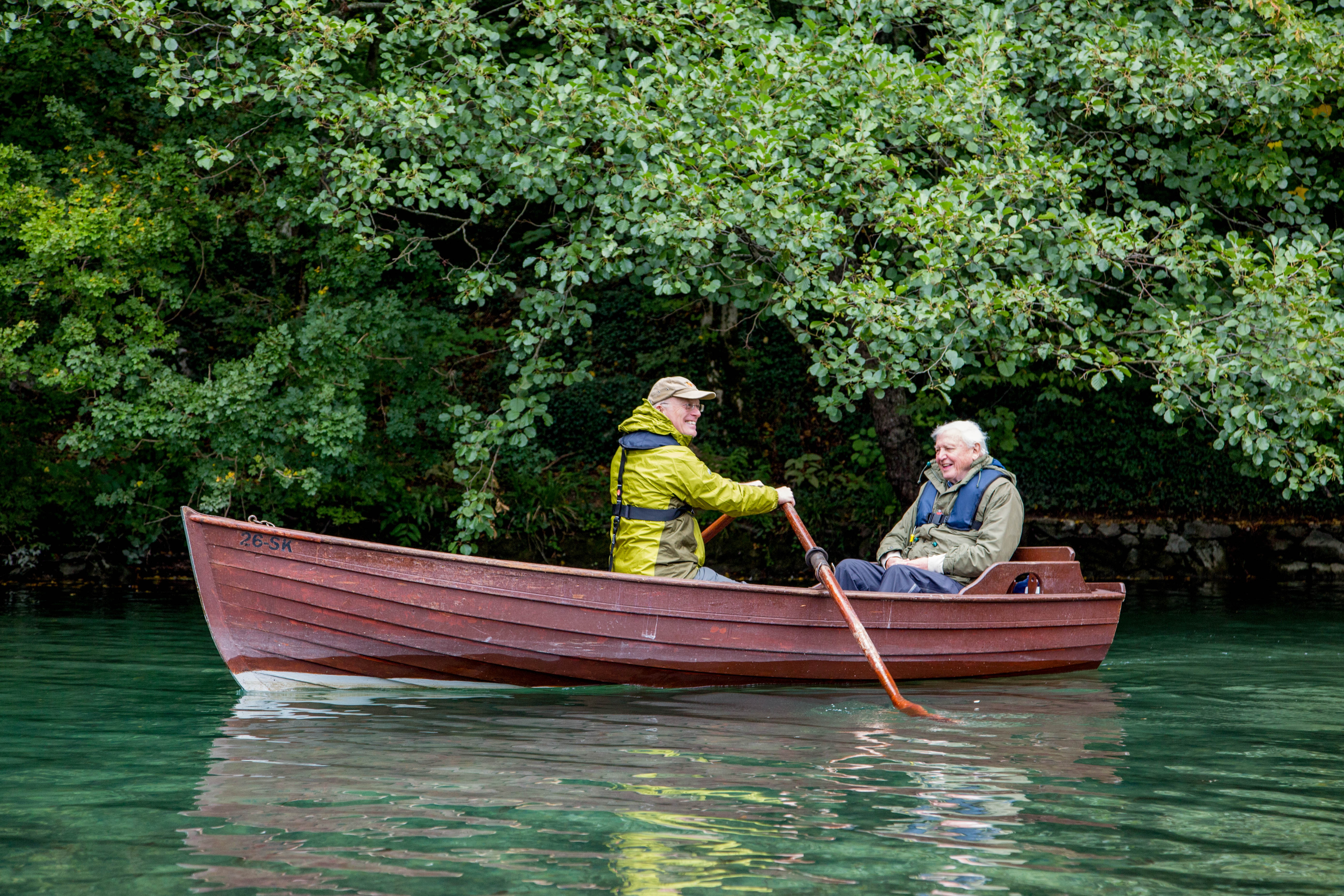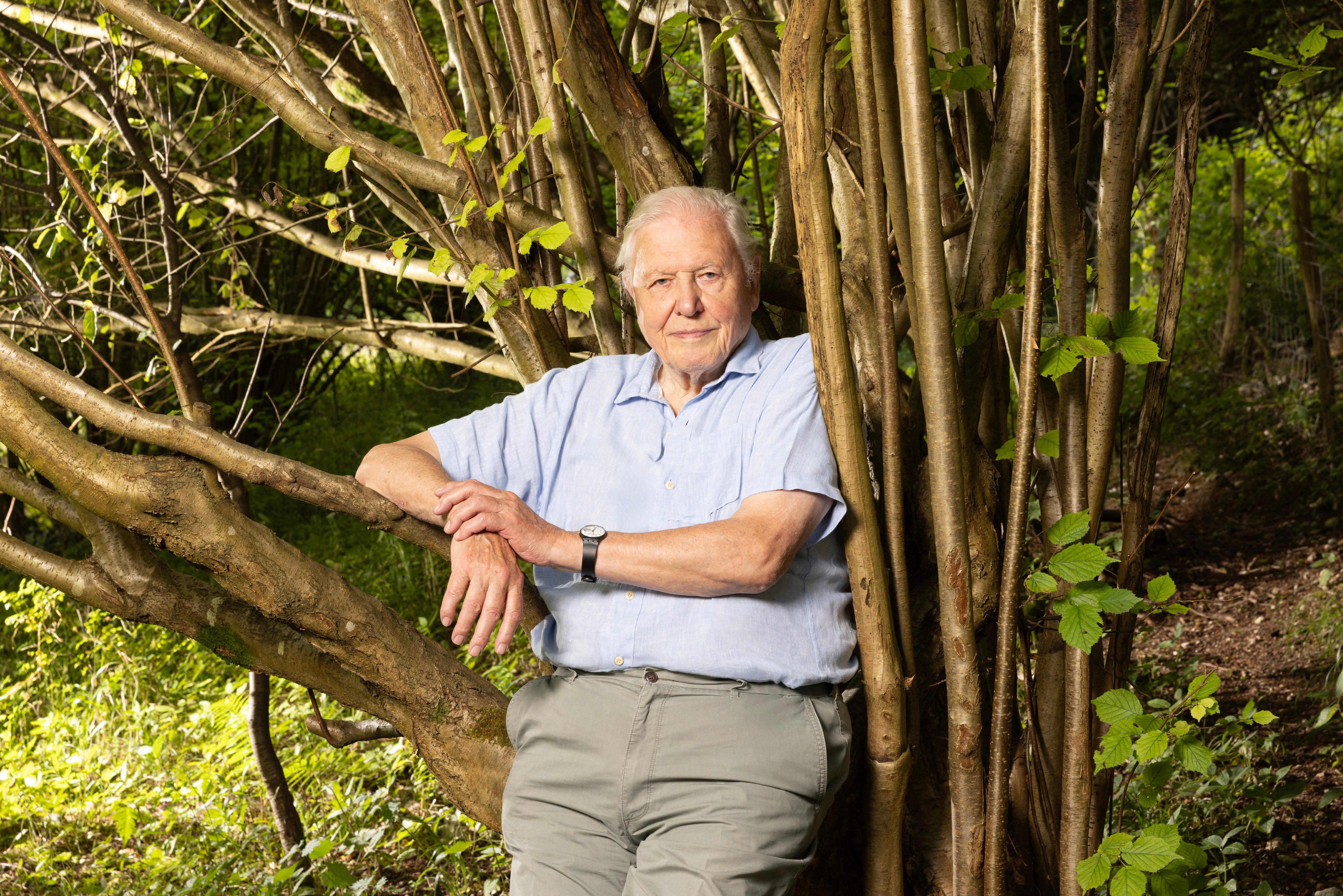‘His curiosity is unbounded’: What it’s like to work with David Attenborough at 97
‘Planet Earth III’ producer Mike Gunton has worked with the world-famous naturalist for almost four decades. He tells Ellie Harrison about his ‘astonishing, brilliant’ friend, who wouldn’t dream of retirement


Your support helps us to tell the story
From reproductive rights to climate change to Big Tech, The Independent is on the ground when the story is developing. Whether it's investigating the financials of Elon Musk's pro-Trump PAC or producing our latest documentary, 'The A Word', which shines a light on the American women fighting for reproductive rights, we know how important it is to parse out the facts from the messaging.
At such a critical moment in US history, we need reporters on the ground. Your donation allows us to keep sending journalists to speak to both sides of the story.
The Independent is trusted by Americans across the entire political spectrum. And unlike many other quality news outlets, we choose not to lock Americans out of our reporting and analysis with paywalls. We believe quality journalism should be available to everyone, paid for by those who can afford it.
Your support makes all the difference.Thirty-six years ago, when Mike Gunton joined the BBC’s Natural History Unit as a keen young producer at the start of his career, he was told that he’d be working on David Attenborough’s last-ever programme. It was The Trials of Life, a study in animal behaviour, and Attenborough, in his sixties then, thought it was time to stop. “Well, that seems hilarious now,” says Gunton. “I don’t know how many series he’s done since, but it must be 20 at least. Long may it last.”
The pair have worked together for almost four decades – Gunton is now 66 and Attenborough 97 – and their latest project is Planet Earth III, which airs its final episode tonight. Just like its two predecessors, which were broadcast in 2006 and 2016, the series has shown us spectacular stories from across the animal kingdom – from a minutes-old ostrich hatchling searching for its mother in the Namib desert to a group of courageous seals driving away great white sharks off the coast of South Africa. But a new element to the show, and one that is increasingly present in Attenborough’s other programmes, is its message: this series is all about how animals are being forced to adapt, to survive the challenges they face in a world changed by humans.
“I’ve done a lot of shows in my life,” says Gunton, “but this is definitely a really important one. It still feels like we’re getting the Planet Earth tingle, in that it’s giving us wonderful stuff about nature, but we’re also saying something about being sensitive to how heavily we tread on our planet.” Planet Earth III certainly demonstrates our negative impact on animal life (turtles on Australia’s Raine Island, for example, are dying en masse as temperatures rise). Yet it also shows how we are innovating to make things better (while the right whale was hunted to near extinction 40 years ago, a ban on commercial whaling has restored numbers to around 12,000). “It’s a very intriguing time to be observing the natural world at the moment, and it’s slightly worrying as well. But there are parts of it that make you hopeful, and that has to be reflected in the programmes.”
In some ways, a lot has changed since Gunton and Attenborough started working together. Attenborough was not a fan of drones when they first arrived on the scene. They would constantly malfunction, and he would have to do countless takes walking through a meadow or a jungle as the camera on the drone zoomed off to reveal him on location. “He’s now a convert, and he absolutely thinks the drone is the key, the breakthrough, in the perspective it can give you on what happens in nature,” says Gunton. The advances in technology have been huge over the decades. “He is astounded by the leap we have taken in the way we use robotic cameras,” Gunton adds. “We can take audiences beyond where the human eye can.”
If somebody ever asked me, ‘What are your memories of him?’, one of the top things I would say is us rolling around laughing, sometimes about the absurdity of the world and the absurdity of what we do
In other ways, nothing has changed at all. Attenborough has always had “a penchant for bird courtship” stories on his shows, and he always will. “There’s a sequence in Planet Earth III with the tragopan, which is a very strange bird that lives in China and has a very complex and bizarre courtship display,” says Gunton. “I think it’s never been filmed in the wild. And of all the things that we showed David, it was that which made his eyes light up.” And Attenborough has always been “hilarious”, says Gunton. “If somebody ever asked me, ‘What are your memories of him?’, one of the top things I would say is us rolling around laughing, sometimes about the absurdity of the world and the absurdity of what we do. He’s a brilliant raconteur.”
So is Gunton. We far-exceed our time slot on Zoom and I can tell he would happily tell stories about his and Attenborough’s adventures for hours (I hear about him sending Attenborough into battle with warrior-like termites Nigeria, and the pair of them sitting, surrounded by butterflies in Kent’s Downe Bank nature reserve). Gunton didn’t always think he would go into natural history – he initially wanted to be a social documentary filmmaker – but during his time as a zoology student at the University of Bristol, a palaeontology professor took him under his wing and he became an “obsessive” student. After going to Cambridge to do a PhD in zoology, he returned to Bristol to work at the BBC’s Natural History Unit, where he is now creative director.

He says that, over the years, Attenborough’s “curiosity has absolutely continued to be unbounded”. When Gunton visits Attenborough’s house in Richmond, “there’ll be a stack of books on the piano that he’s reading, working his way through. He’ll say, ‘Have you read this? Have you seen this?’ It’s that kind of constant scholarship. He’s so busy. It’s bonkers. He’s away at this event and that event and at some library here, and the energy is astonishing.”
He tells me a story to prove the point. During the filming of The Green Planet, which came out last year, there was a sequence where Attenborough was presenting from a rowing boat on a lake in Croatia. Gunton, three decades Attenborough’s junior, was meant to be doing most of the rowing when the cameras weren’t rolling, but Attenborough wasn’t having any of it. He jumped into the rowing seat at the first opportunity. “I’ll row. No, no, I’ll do it. I’ll do it,” Gunton remembers him insisting. “We started getting competitive because he was a rower at university [in Cambridge] and so was I. I was saying, ‘Look, come on, I’m a rower.’ He said, ‘No, we could row just as well as you row.’ So, as a 94-year-old, he basically rowed that boat about a mile, and it was a big heavy boat. Working with him in his nineties is not that hard, because he can do almost anything.”

While Attenborough tends to go out in the field less and less these days, Gunton says his influence on the series goes far beyond his narration. “This has been his format, ever since he made Life on Earth [in 1979]. So these shows are effectively modifying or twiddling around the edges of that format, with his DNA there all the time.” Gunton says that with every shot, every storyline in the series, he’s thinking, “How is this going to be told by David?” He will bounce ideas off Attenborough, too, and seek his advice on trickier scenes.

Watch Apple TV+ free for 7 days
New subscribers only. £8.99/mo. after free trial. Plan auto-renews until cancelled

Watch Apple TV+ free for 7 days
New subscribers only. £8.99/mo. after free trial. Plan auto-renews until cancelled
Attenborough is the right man to ask. He has been the single biggest influence on nature programming in, well, forever. His playful storytelling has had us gripped by the antics of everything from spindly weeds in the ground to tiny sea angels in the ocean. Seeing nature in this awe-inspiring way has taught us all about the wonders of the world and the need to protect them. And many others – most recently Morgan Freeman, who presented the inferior Life on Our Planet on Netflix – have failed to replicate his magic.

The last time Attenborough properly went out on location on a series, doing hardcore expeditions, was for The Green Planet. “We went to Costa Rica and across America and to [its] deserts,” says Gunton. “And we went to just outside the Arctic Circle in Finland, and to Croatia. He loved it. Beforehand, we were talking about how many days we’d have, and we said, you know, maybe three weeks or something in total. And his daughter was there, who he works with a lot, and she said, ‘Look, you’ve got to be careful, don’t do too many days.’ And when she nipped out to go and make us a cup of tea, he turned to me and whispered, ‘Actually, let’s do another couple of days!’ That sums him up, actually. He was 94.”
Gunton struggles to envisage a future without Attenborough guiding us through the natural world. “Forty years ago, I was a new boy at the Natural History Unit,” he says. “And they said, ‘Of course, this is David’s last series, so we ought to be thinking about who’s going to take over.’ And that is something that people have been talking about ever since. I think it’s one of those things where we cross that bridge when we come to it, but at the moment, he seems to be going on six cylinders.”
He laughs as he admits he “cheekily” asked Attenborough if he’ll ever retire. Attenborough’s response? “I don’t know what that word means.”
The final episode of ‘Planet Earth III’ will air at 6.20pm on BBC One on Sunday 10 December
Join our commenting forum
Join thought-provoking conversations, follow other Independent readers and see their replies
Comments